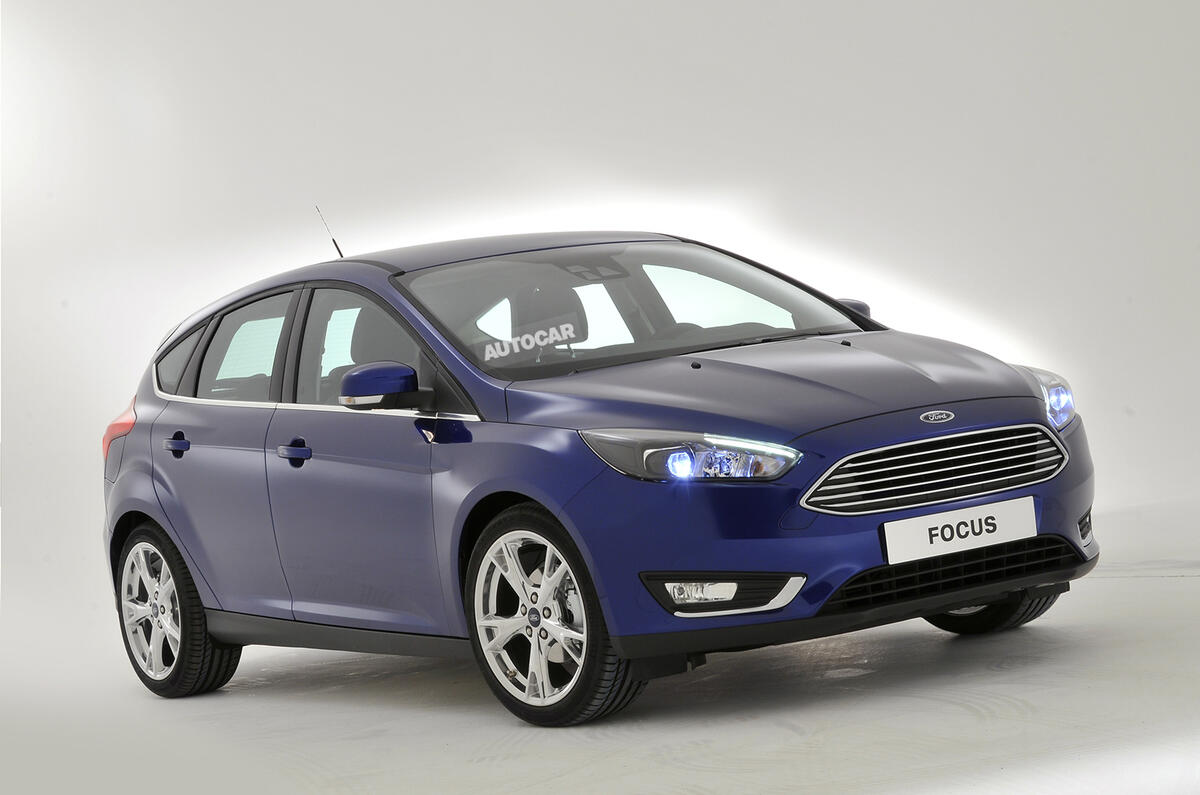The facelifted Ford Focus will cost from £13,995, the same as the current model, when it goes on sale in November.
Ford's biggest-selling global car has undergone a significant refresh that adds more technology, improved cabin quality, new powertrains, some cosmetic revisions and a raft of chassis and handling tweaks.
The range retains a six-level line-up of Studio (from £13,995), Style (£16,795), Zetec (£18,295), Zetec S (£20,045), Titanium (£19,795) and Titanium X (£21,795). The prices of the high-level Titanium and Titanium X versions are £100 less than the current equivalents.
The entry-level model will continue to be a 1.6-litre TI-VCT petrol in Studio trim equipped with a five-speed manual gearbox. The cheapest diesel variant will cost £17,895 for a 1.6 TDCi in Style trim with a six-speed manual transmission. The entry-level estate-bodied car is the 1.6-litre petrol at £17,880.
Ford product development boss Joe Bakaj has pledged that the new Ford Focus, heavily revised in the latest generation, will regain its slot as the best-handling car in the class.
Stung by the handling prowess of the latest Volkswagen Golf, which ousted the Ford Focus as the best-handling car in the class, Ford has engineered a raft of detailed chassis changes as part of a deep-facelift that also includes four re-tooled body panels, revised front and rear bumpers, new front and rear lights, a new dashboard and new cleaner engines.
"We want our handling crown back, that's why our engineers put a lot of effort into revamping the Focus chassis," said a determined Bakaj at a launch event for the new Focus earlier this year.
Many of the detailed chassis components are replaced or retuned, starting with new, more expensive front dampers, which now offer more subtle body control thanks to two extra steps in the damper valving.
The springing stays the same, but there are new, stiffer bushes both front and rear, aimed at firming the chassis in a lateral direction with the benefit of more stability.
"The turn-in was already pretty good," says Bakaj, "but the new Focus has less delay on turn-in and that extra edge of bite in cornering."
Also retuned is the electric power steering, which Bakaj says now offers better 'on-centre' feel. "The steering wheel weighting is now much more progressive, too," he adds.
More handling improvements come from a reprogrammed ESC system, which is said to operate more smoothly with more gentle intervention.








Join the debate
Add your comment
I don't ever remember reading
shame they ran out of money
I would be surprised if these